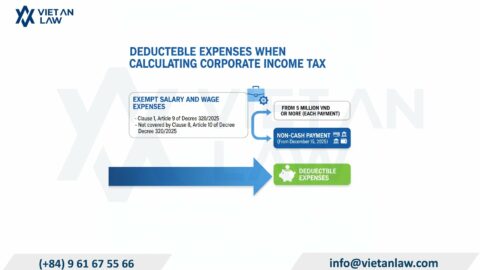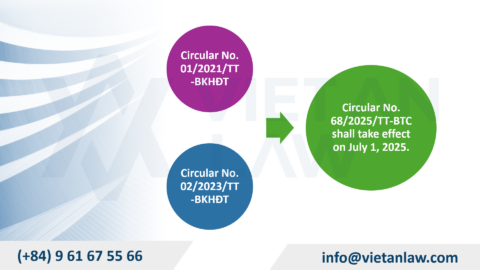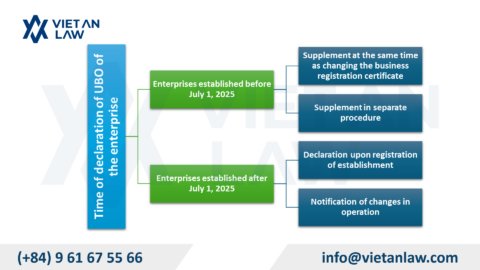With the goal of pursuing renewable energy and decreasing the impact on the environment, on 22/10/2024, Decree 135/2024/ND-CP stipulated mechanisms and policies to encourage the development of rooftop solar power for self-production and self-consumption promulgated and forced by the government within the same day. One of the most noticeable contents of this Decree is the registration of self-production and self-consumption rooftop solar power development in households today. Viet An Law will update information on the rooftop solar power self-produced regulations in Vietnam according to Decree 135/2024/ND-CP.
Table of contents
Rooftop solar power is electricity produced from photovoltaic panels according to the principle of transforming from photovoltaic energy to electricity, through a construction structure to install on the roof of a construction work, connect to electrical equipment, and directly serve power generation activities. Self-produced and self-consumed electricity is electricity produced and consumed by an organization or individual to serve the main needs of such organization or individual.
In Article 8 of the newly issued Decree 135/2024/ND-CP, Vietnam is implementing policies to encourage the development of rooftop solar power self-produced energy as follows:
Organizations and individuals that install rooftop solar power for self-production and self-consumption are exempt from electricity activity licenses and have no capacity limit in the following cases:
Under the rooftop solar power self-produced regulations in Vietnam, enterprises engaged in the self-production and self-consumption of rooftop solar power are eligible for preferential policies concerning corporate income tax and value-added tax (VAT) when undertaking new investment projects, in compliance with the prevailing tax laws.
Under the rooftop solar power self-produced regulations in Vietnam, self-produced and self-consumed rooftop solar power not connected to the national power system refers to solar power that generates and supplies electricity exclusively to on-site loads without integration into the national grid. According to Article 6 of Decree No. 135/2024/ND-CP, entities intending to install such systems must fulfill specific obligations prior to installation:
According to Article 7 of Decree No. 135/2024/ND-CP, organizations, individuals, households, and standalone residential houses that develop rooftop solar power for self-production and self-consumption with an installed capacity of less than 100 kW must:
Before installing rooftop solar power for self-production and self-consumption with an installed capacity ranging from 100 kW to less than 1,000 kW, organizations and individuals must:
Currently, in cases where rooftop solar power for self-production and self-consumption is connected to the national power grid, the notification should be made using Form No. 04 of the Annex issued together with Decree No. 135/2024/ND-CP.
According to Clause 2, Article 8 of Decree No. 135/2024/ND-CP, the regulations are as follows:
“Article 8. Incentive Policies
2. Organizations and individuals installing rooftop solar power for self-production and self-consumption with an installed capacity of 1,000 kW or more and selling surplus electricity to the national grid must comply with power planning procedures (except for cases where the capacity scale is allocated under the local planning and implementation plans) and apply for a power operation license following the law.”
Therefore, in cases where rooftop solar power for self-production and self-consumption is connected to the national grid with a capacity of 1,000 kW or more and sells surplus electricity to the national grid, registration for a development registration certificate is required.
The dossier for the development registration of rooftop solar power for self-production and self-consumption must comply with Clause 2, Article 10 of Decree No. 135/2024/ND-CP, including:
Surplus electricity is the electricity produced by the rooftop solar power system for self-production and self-consumption that is not fully used for the load and is fed into the national power grid.
Activities related to selling surplus electricity must adhere to certain regulations in Decree No. 135/2024/ND-CP as follows:
Under the rooftop solar power self-produced regulations in Vietnam, organizations and individuals may opt to either feed or not feed surplus electricity, if any, from their self-produced and self-consumed rooftop solar power systems into the national grid. Households and standalone residential houses with such systems, with an installed capacity of less than 100 kW, may sell surplus electricity to the national grid, provided they meet the following conditions:
The purchase price of surplus electricity fed into the national power grid is equivalent to the average market electricity price of the previous year announced by the system operator and electricity market to ensure appropriate incentives in each development period of the national power grid.
Note: Rooftop solar power for self-production and self-consumption installed on the roofs of public office buildings or structures identified as public assets will not participate in the sale of surplus electricity.
In cases where surplus electricity is not sold to the national power grid, registration must be made according to Point b, Clause 1, Article 8 of Decree No. 135/2024/ND-CP. Accordingly, organizations/individuals producing and consuming their electricity are obliged to install anti-reverse power systems if connected to the national power grid.
The buyer and seller of surplus electricity shall sign a power purchase agreement according to Form No. 05 in the Annex issued together with Decree No. 135/2024/ND-CP. The term of the power purchase agreement is 5 years from the date the self-produced, self-consumed rooftop solar power system is put into operation.
The procedure for buying and selling electricity for rooftop solar power for self-production and self-consumption with surplus electricity is specified in Article 18 of Decree No. 135/2024/ND-CP, including the following steps:
Above are some notable contents regarding the notification and registration procedures for the development of self-produced rooftop solar power systems according to Decree No. 135/2024/ND-CP. If you have any related questions, please contact Viet An Law for the best advice and support!




